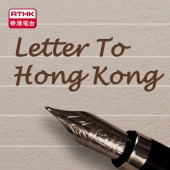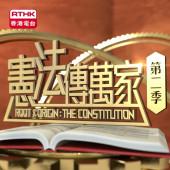 Loading ...
Loading ...Former Chief Executive CY Leung
2020-07-12
返回
Former Chief Executive CY Leung
2020-07-12
Dear Joe,
Greetings from Hong Kong. You said you have been confused by media reports about Hong Kong’s national security law. I don’t blame you. What you read in the Western media have a lot to do with geo-politics and little with the freedoms of the Hong Kong people.
First, One Country Two Systems is alive and well. So are the freedoms that Hong Kong people enjoy. Those who claim that we are losing our freedoms would not swap their residency in Hong Kong for any city in the Mainland of China, or for that matter, any other city in Asia.
On the question of safeguarding national security, if not for the One Country Two Systems principle, the Central Authorities of China would have simply extended to Hong Kong the coverage of the national security laws that have been in force on the Mainland. So think twice when you hear Western politicians say that One Country Two Systems is dead in Hong Kong.
Secondly, perhaps when critics say One Country Two Systems is dead, they actually mean that the autonomy that Hong Kong enjoys has been terminated by the Chinese Government. Here let’s look at the basic facts. The autonomy that Hong Kong enjoys is not the “full autonomy” as Nancy Pelosi, speaker of the United States House of Representatives, once publicly claimed. It is the high degree of autonomy that the Basic Law confers under many of its 160 articles. And so far, no one in Hong Kong or elsewhere has alleged that the enactment or the substance of the national security law breach the Basic Law. I know this question has been asked: why did the National People’s Congress passed the law for Hong Kong, bypassing the Legislative Council? Is that not taking away the autonomy of Hong Kong? The answer can be found in Article 18 of the Basic Law which states “national laws shall not be applied in the Hong Kong SAR except for those listed in Annex III to this Law. The laws listed therein shall be applied locally by way of promulgation or legislation by the Region.” The key words are “promulgation or legislation”. The national security law has taken the promulgation route.
Without going as far as accusing the Chinese government of breaking the Basic Law, some foreign governments have pointed their fingers at the 1984 Sino-British Joint Declaration. Let us then look at the Joint Declaration. There one of the articles states as follows, “The above-stated basic principles of the People’s Republic of China regarding Hong Kong and the elaboration of them in Annex I to this Joint Declaration will be stipulated, in a Basic Law of the Hong Kong Special Administrative Region... ”. Simple logic tells us that insofar as the Chinese Government’s basic policies regarding Hong Kong are concerned, there can be no breach of the Joint Declaration because there is no breach of the Basic Law.
Let me stay on the Basic Law for a while longer. As part of Hong Kong’s high degree of autonomy, at the time of promulgating the Basic Law, Hong Kong was given the autonomy and the responsibility of enacting its own laws to safeguard national security. This is found in the well known Article 23, which starts with the words “The Hong Kong Special Administrative Region shall enact laws on its own to prohibit any act of treason, secession, sedition, subversion against the Central People’s Government.....”. In 2003, the first and only attempt to fulfil this obligation failed. Since then the often-used filibustering tactic of the pan-democrats meant that any attempt by the Hong Kong SAR Government to enact Article 23 laws would inevitably fail. In recent years the pan-democrats moved the goal posts by insisting that Article 23 laws can only be enacted after Hong Kong has accomplished direct election of the Chief Executive. Indeed as you remember, when I as the Chief Executive tried to reform the electoral system in that direction, the goal post was moved yet again. The pan-democrats with their Occupy Central supporters wanted civic nomination of Chief Executive candidates instead of nomination by a nomination committee which is the requirement under the Basic Law. They also wanted to do away with the power of the Central Government in appointing or not appointing the elected candidate.
So for 23 years Hong Kong did not utilise its autonomy
to fulfil its national security obligations. In the absence of such laws, we have seen in recent years increasing threats to national security, particularly threats to the integrity of Chinese sovereignty over Hong Kong. Both the Chinese Government and the people on the Mainland are rattled. Hong Kong as a whole was seen as abusing its high degree of autonomy and allowing itself to be used as a base and recruitment centre of subversion.
Such people as Jimmy Lai who claim that they are being targeted by the national security law label themselves as leaders in a pro-democracy movement. So let me say something about the nature of democracy in Hong Kong. Hong Kong is not a country. We are a city. But the powers vested in the Chief Executive are much broader compared to those held by the mayors of London, Tokyo and New York, for example. Where do the broader powers of the Hong Kong Chief Executive come from? Not from the Hong Kong electorate. By appointing the elected candidate if it sees fit, the Central Government confers onto the Chief Executive additional powers. So it is the combination of the two mandates, one from the Hong Kong electorate and the other the Chinese Central Government that gives the Chief Executive wide ranging powers and Hong Kong the high degree of autonomy. The pan-democrats wanted to remove the Central Government from this equation and maintain the powers of the Chief Executive. This is not democracy. It is secession by any definition.
Are there other signs of relegating Chinese sovereignty over Hong Kong? Yes. The most recent example was the attempt to frustrate the coming into force of the national anthem law. Filibustering by the pan-democrats wasted months. The goal was to frustrate the passage of the Bill all the way into the summer when Legco would finish its term.
Now that the law has come into force, what’s next? The opposition ironically has been as rowdy and Apple Daily as anti-China as before, despite their claim of being targeted. Roy Kwong Chun-yu, a vocal LegCo member of the Democratic Party happily declared that he had bought a brand new apartment for over HK$10 million and would soon move out of his public rental housing unit. I am glad that the HK$5 million income that he will have received by the end of his 4-year term as LegCo member has been put to good use. Of course he is not alone in the market. Recent offers by real estate developers have done very well. So much for “The end of Hong Kong”. You should be confused. As I said at the beginning, I don’t blame you for it.
Greetings from Hong Kong. You said you have been confused by media reports about Hong Kong’s national security law. I don’t blame you. What you read in the Western media have a lot to do with geo-politics and little with the freedoms of the Hong Kong people.
First, One Country Two Systems is alive and well. So are the freedoms that Hong Kong people enjoy. Those who claim that we are losing our freedoms would not swap their residency in Hong Kong for any city in the Mainland of China, or for that matter, any other city in Asia.
On the question of safeguarding national security, if not for the One Country Two Systems principle, the Central Authorities of China would have simply extended to Hong Kong the coverage of the national security laws that have been in force on the Mainland. So think twice when you hear Western politicians say that One Country Two Systems is dead in Hong Kong.
Secondly, perhaps when critics say One Country Two Systems is dead, they actually mean that the autonomy that Hong Kong enjoys has been terminated by the Chinese Government. Here let’s look at the basic facts. The autonomy that Hong Kong enjoys is not the “full autonomy” as Nancy Pelosi, speaker of the United States House of Representatives, once publicly claimed. It is the high degree of autonomy that the Basic Law confers under many of its 160 articles. And so far, no one in Hong Kong or elsewhere has alleged that the enactment or the substance of the national security law breach the Basic Law. I know this question has been asked: why did the National People’s Congress passed the law for Hong Kong, bypassing the Legislative Council? Is that not taking away the autonomy of Hong Kong? The answer can be found in Article 18 of the Basic Law which states “national laws shall not be applied in the Hong Kong SAR except for those listed in Annex III to this Law. The laws listed therein shall be applied locally by way of promulgation or legislation by the Region.” The key words are “promulgation or legislation”. The national security law has taken the promulgation route.
Without going as far as accusing the Chinese government of breaking the Basic Law, some foreign governments have pointed their fingers at the 1984 Sino-British Joint Declaration. Let us then look at the Joint Declaration. There one of the articles states as follows, “The above-stated basic principles of the People’s Republic of China regarding Hong Kong and the elaboration of them in Annex I to this Joint Declaration will be stipulated, in a Basic Law of the Hong Kong Special Administrative Region... ”. Simple logic tells us that insofar as the Chinese Government’s basic policies regarding Hong Kong are concerned, there can be no breach of the Joint Declaration because there is no breach of the Basic Law.
Let me stay on the Basic Law for a while longer. As part of Hong Kong’s high degree of autonomy, at the time of promulgating the Basic Law, Hong Kong was given the autonomy and the responsibility of enacting its own laws to safeguard national security. This is found in the well known Article 23, which starts with the words “The Hong Kong Special Administrative Region shall enact laws on its own to prohibit any act of treason, secession, sedition, subversion against the Central People’s Government.....”. In 2003, the first and only attempt to fulfil this obligation failed. Since then the often-used filibustering tactic of the pan-democrats meant that any attempt by the Hong Kong SAR Government to enact Article 23 laws would inevitably fail. In recent years the pan-democrats moved the goal posts by insisting that Article 23 laws can only be enacted after Hong Kong has accomplished direct election of the Chief Executive. Indeed as you remember, when I as the Chief Executive tried to reform the electoral system in that direction, the goal post was moved yet again. The pan-democrats with their Occupy Central supporters wanted civic nomination of Chief Executive candidates instead of nomination by a nomination committee which is the requirement under the Basic Law. They also wanted to do away with the power of the Central Government in appointing or not appointing the elected candidate.
So for 23 years Hong Kong did not utilise its autonomy
to fulfil its national security obligations. In the absence of such laws, we have seen in recent years increasing threats to national security, particularly threats to the integrity of Chinese sovereignty over Hong Kong. Both the Chinese Government and the people on the Mainland are rattled. Hong Kong as a whole was seen as abusing its high degree of autonomy and allowing itself to be used as a base and recruitment centre of subversion.
Such people as Jimmy Lai who claim that they are being targeted by the national security law label themselves as leaders in a pro-democracy movement. So let me say something about the nature of democracy in Hong Kong. Hong Kong is not a country. We are a city. But the powers vested in the Chief Executive are much broader compared to those held by the mayors of London, Tokyo and New York, for example. Where do the broader powers of the Hong Kong Chief Executive come from? Not from the Hong Kong electorate. By appointing the elected candidate if it sees fit, the Central Government confers onto the Chief Executive additional powers. So it is the combination of the two mandates, one from the Hong Kong electorate and the other the Chinese Central Government that gives the Chief Executive wide ranging powers and Hong Kong the high degree of autonomy. The pan-democrats wanted to remove the Central Government from this equation and maintain the powers of the Chief Executive. This is not democracy. It is secession by any definition.
Are there other signs of relegating Chinese sovereignty over Hong Kong? Yes. The most recent example was the attempt to frustrate the coming into force of the national anthem law. Filibustering by the pan-democrats wasted months. The goal was to frustrate the passage of the Bill all the way into the summer when Legco would finish its term.
Now that the law has come into force, what’s next? The opposition ironically has been as rowdy and Apple Daily as anti-China as before, despite their claim of being targeted. Roy Kwong Chun-yu, a vocal LegCo member of the Democratic Party happily declared that he had bought a brand new apartment for over HK$10 million and would soon move out of his public rental housing unit. I am glad that the HK$5 million income that he will have received by the end of his 4-year term as LegCo member has been put to good use. Of course he is not alone in the market. Recent offers by real estate developers have done very well. So much for “The end of Hong Kong”. You should be confused. As I said at the beginning, I don’t blame you for it.
Politicians and public figures from a range of backgrounds take turns to have their say on important matters of the day in this personal view programme.
Catch it live: Sunday 8:15am - 8:25am
Podcast: Updated weekly and available after broadcast.












